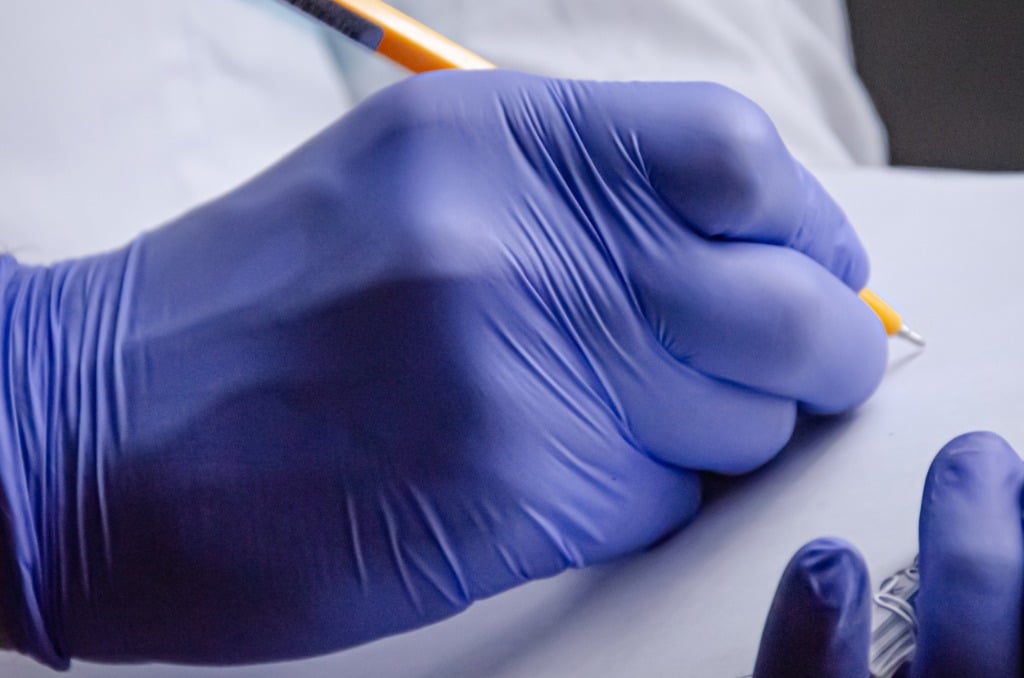Suppose you need to sign a new will, trust and powers of attorney. It’s important that you get this project completed in the midst of the current national health crisis. But what signing safeguards should you look for, in order to help protect your safety?
At Fleming & Curti, PLC, we share your concern over the possibility of inadvertent transmission of infectious agents. We are working hard to get your documents signed quickly, efficiently — and safely.
Signing choices for you to consider
For most of the documents making up your estate plan, you will need a notary and two witnesses to watch you sign — or to hear you tell them that you have signed. You may be comfortable with the relatively low risk inherent in coming to our office for the signing. But even if you are comfortable with that option, we have implemented several signing safeguards to help protect you. And we will let you choose to be even more cautious if you prefer.
We do wipe down surfaces in our front office and conference rooms before and after each visit. But if you are concerned about taking even that level of risk, we have other options. We are happy to arrange for a “drive-by” signing — we won’t even make you get out of your car. Or you can sit outdoors and have the witnesses and notary stand an appropriate distance away while you sign.
Are you too concerned to even leave your home? No problem; we can come to you. We ordinarily charge a flat home-visit fee of $250 to bring the witnesses and notary to you. For April and May, we will reduce that charge to $100. And once there, we can either conduct the signing in your kitchen or living room, OR do the whole thing on your patio or other outside location. That way, you don’t leave your home and no one else comes inside.
Some signing safeguards we will use in every case
Regardless of how or where we handle the signing, we will take a few protective steps. As noted above, we wipe down every surface you might come in touch with, using either a bleach-based or an alcohol solution. All of our staff will wear gloves for the signing ceremony, and only the one staff member supervising the signing will actually handle the documents.
In some cases we will even print the documents at least 72 hours in advance, and arrange things so that no one handles the documents before you sign. Witnesses will remain at a safe distance, and may actually sign later, back in the office. Their signing may take place as much as 72 hours after you sign; Arizona law permits a later signing by witnesses and notary.
We have long provided a new pen to each client signing a document. That helps minimize your contact with anything touched by anyone in the office. Our pens come in separate sleeves so no one will have touched them in advance. And we can deliver the signed original documents to you three days (or more) later, so that you won’t have to worry about who might have handled documents during scanning, copying and collation.
Can’t we just go virtual?
You might wonder why we can’t just conduct virtual signings, or do everything online. That’s because Arizona law doesn’t (yet) allow every document to be signed remotely and electronically.
Arizona did adopt a new “digital will” law two years ago. The new law — just the third in the country — took effect last summer. But it still requires the two witnesses to be physically present when a will is signed. So it doesn’t really help reduce the number of people involved in a will signing.
Signing trusts and powers of attorney might be a little bit easier to handle electronically. But because there is such significant confusion about Arizona’s law we are reluctant to run the risk that your documents might not be effective.
Could we just mail (or deliver) the documents to you? Twenty-four to seventy-two hours later you could open the envelope and have family and/or caregivers sign as witnesses? In theory, yes — but Arizona law has a set of complicated and contradictory requirements about who can witness the various documents.
To complete a set of estate planning documents, we’d have to find two witnesses who aren’t related to you, don’t receive anything from your will, and aren’t involved in your medical care. And then we’d need a notary, too. In other words, three people from our office. And we’re right back where we started.
We know you’re concerned about safety. We are, too — our signing safeguards are intended to protect our staff just as much as we protect you. Please don’t put off signing your wills, trust and powers of attorney out of concern for exposure. Let us help you get the signing of these important documents completed safely.



